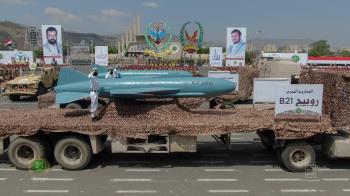Alwaght: The United Nations has said that many of the Muslims displaced by inter-communal violence in Myanmar are still prevented from moving freely and often denied access to local hospitals.
John Ging, director of operations at the UN's Office for the Coordination of Humanitarian Affairs (UNOCHA), made the remarks on Tuesday after paying a visit to western Rakhine state, where Rohingya Muslims have faced violent attacks by Buddhist majority as well as discrimination.
More than 100,000 people remain displaced by the ongoing conflict in Kachin and northern Shan States, while some 120,000 Muslims, mainly Rohingya, remain displaced following the inter-communal violence of 2012 in Rakhine state, said Ging.
Despite an impressive democratic transformation, which is unlocking significant economic growth and development, “not everyone in Myanmar is benefiting in this transition,” he said.
In Kachin and northern Shan states, over 100,000 people are living in temporary camps, despite the ceasefire signed last October, Mr. Ging said. He visited Woi Chyai and Je Yang camps in the non-Government controlled areas, witnessing the senseless loss of life and human suffering caused by the conflict.
In Rakhine State, Mr. Ging visited internally displaced persons (IDP) camps in Myebon and met people from both Muslim and Buddhist communities, seeing first-hand the humanitarian conditions in the camps. While acknowledging that the State Government has made progress in improving the living conditions for some, Mr. Ging expressed shock at seeing so many temporary shelters in a state of collapse and the appalling sanitation conditions.
“It was heart-breaking to see so many children in these dreadful conditions,” said Mr. Ging, adding that one mother told him that her baby, less than a month old, died from lack of oxygen in December after she, as a Rohingya Muslim, was denied access to treatment at the nearby township hospital.
“These do not reflect the values of the people of Myanmar or the historical diversity of the country,” he said, warning that “segregation and disenfranchisement are flawed and inhumane policies and history teaches us that they fail every time.”
Over 1.3 million Rohingya Muslims in Myanmar face discrimination, including controls on their movements, family size and access to jobs.
In recent years, a large number of Rohingya Muslims have been killed and thousands displaced in attacks by extremist Buddhists, especially in Rakhine State.
Myanmar denies full citizenship to Rohingya population in the country. According to the United Nations, Rohingya Muslims are one of the most persecuted minorities in the world.
The violence against Rohingya Muslims in Myanmar has triggered an influx of refugees into neighboring countries, namely Thailand, Malaysia and Indonesia.



























